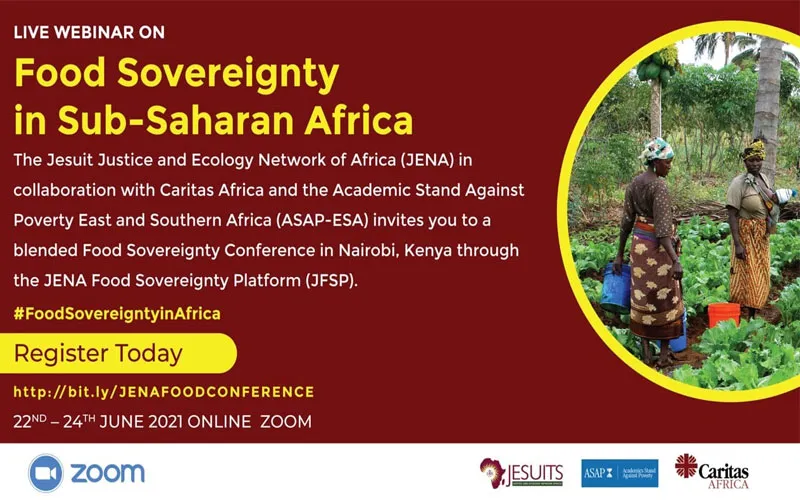“We have an opportunity to build back stronger food systems than ever,” he told the participants, adding that those taking part in the conference are expected to “generate creative ideas, strategies and collaborative efforts to build back better in order to transform Sub-Saharan Africa into an inclusive, climate-sensitive and food-secure region.”
Fr. Orobator went on to express concerns about the hunger crisis among the people of God on the world's second-largest and second-most populous continent when “ironically, Sub-Saharan Africa has relatively good climates and arable soils.”
“It is worrisome that in the midst of an abundance of food, millions of Africans still go to bed hungry,” the Nigerian-born Jesuit Priest said.
Making reference to Pope Francis’ message at the 42nd Conference of the Food and Agriculture Organization (FAO), Fr. Orobator said that “paradoxically, the very people who produce food are the ones who are going hungry.”
“Three quarters of the world’s poor live in rural areas and depend mainly on agriculture for their livelihoods. However, due to lack of access to markets, land ownership, financial resources, infrastructure and technologies, these brothers and sisters of ours are the ones who are most vulnerable to food insecurity,” he further said in reference to the Holy Father’s message.
Against this backdrop, the Nairobi-based Priest said that members of the Society of Jesus (Jesuits) “hold the unshakable conviction that there is no future without food security and climate justice.”
“Food is more than just what we eat. The ways in which we produce, process and consume food touch every aspect of life on the planet. It is the foundation of our cultures, our economies and our relationship with the natural world. Food has the power to bring us together as families, as communities and as nations,” he said.
Still referencing Pope Francis’ message during the FAO conference, the Priest said that in order to have solutions to challenges around food, “we must above all ensure that food systems are resilient, inclusive, sustainable and able to provide healthy and affordable diets for all.”
To bridge the gaps in Sub-Saharan Africa’s Food Systems, Fr. Orobator said that the Jesuit Justice and Ecology Network Africa (JENA) plans to work alongside faith and non-faith-based stakeholders within and beyond the continent “to propose a new agricultural development model that supports local biodiversity and ecosystems and the protection of the planet, and prioritizes the poor and the most vulnerable.”
Magdalene Kahiu is a Kenyan journalist with passion in Church communication. She holds a Degree in Social Communications from the Catholic University of Eastern Africa (CUEA). Currently, she works as a journalist for ACI Africa.








